|
Senior Lieutenant General Pham The Tung, Deputy Minister of Public Security, emphasized that the Hanoi Convention is the first global legal instrument of the United Nations to enhance international cooperation in investigating, prosecuting and preventing cybercrime. (Photo: Thanh Long) |
The seminar was chaired by Mr. Neal Jetton, Director of the Cybercrime Prevention Department of the International Criminal Police Organization (INTERPOL), with the participation of representatives from many countries and international organizations...
Speaking at the seminar, Senior Lieutenant General Pham The Tung, Deputy Minister of Public Security, affirmed that the risk of transnational crime is always present, threatening the security and sovereignty of countries around the world. In particular, cybercrime has emerged as a particularly dangerous challenge, because this type of crime has no borders.
"Therefore, a single country cannot prevent and thoroughly combat this type of crime, but needs cooperation, support and connection from the international community and other countries," the General pointed out.
According to Senior Lieutenant General Pham The Tung, in recent years, international cooperation activities between law enforcement forces of countries around the world in preventing cybercrime have been taking place extremely vigorously, especially within the multilateral cooperation frameworks of the UN and INTERPOL. However, in addition to the achieved results, the process of international cooperation between countries still faces difficulties and obstacles, especially in legal matters.
Currently, there is a lack of a global legal document regulating the cooperation between countries in preventing cybercrime, so the results of fighting this crime are limited. Many cases and incidents cannot be investigated and prosecuted due to the inconsistency between the legal systems of countries.
In that context, the birth of the UN Convention against Cybercrime is of particular importance. This is the first global legal instrument of the UN to enhance international cooperation in investigating, prosecuting and preventing cybercrime.
|
Senior Lieutenant General Pham The Tung speaks at the seminar. (Photo: Thanh Long) |
"For Vietnam, the Convention not only opens up opportunities to share data, electronic evidence and investigative experience with other countries, but also creates conditions to synchronize the domestic legal system according to international standards, promoting the building of a safe, transparent and responsible cyberspace in the digital age. We believe that international cooperation in crime prevention is an urgent and mandatory requirement in the current period for each country," Senior Lieutenant General Pham The Tung emphasized.
In fact, over the past time, the Vietnamese Public Security force has always cooperated closely with law enforcement agencies of other countries, international organizations, and private units in preventing transnational crimes in general and cybercrime in particular, contributing to maintaining social order and safety, towards the common goal of ensuring security and safety in the region, the world, and each country.
|
Delegates attending the discussion session. (Photo: Jackie Chan) |
According to Senior Lieutenant General Pham The Tung, in the coming time, the situation of transnational crimes, especially cybercrime, will continue to have many complicated developments. Therefore, the Deputy Minister of Public Security proposed a number of specific tasks to continue to cooperate more closely to effectively implement the UN Convention on Cybercrime:
Firstly, countries should promptly complete the procedures for joining the Convention and focus on internalizing the provisions of the Convention into the national legal system of each country.
Second, during the implementation process, countries need to flexibly apply the provisions of the Convention as well as the laws of each country to improve the effectiveness of international cooperation in investigating and handling cases related to cybercrime.
Third, it is recommended that countries strengthen public and private efforts in preventing cybercrime. In fact, technology companies, banks, service providers, and virtual currency exchanges hold a lot of information related to the identity, behavior, and methods of operation of criminals, as well as data exchanged between users and criminals. This is an important source of evidence to help investigative agencies and law enforcement agencies have enough evidence to prove crimes.
Fourth, it is recommended that countries regularly share experiences in preventing cybercrime, especially new methods and tricks of crime. It is especially necessary to transfer technology and tools used to support the process of collecting electronic evidence, and share experiences in building specialized centers to respond to emergency situations related to cybercrime. At the same time, support training, coaching, and capacity building for law enforcement forces in inexperienced countries, contributing to improving the ability to predict, prevent, and respond to new types of crime.
Fifth, countries need to cooperate closely in building a strategy to propagate and educate the community about cyber security. Each citizen and organization needs to become the first shield in cyberspace, have knowledge to participate in a safe and healthy digital environment, and know how to protect themselves from increasingly sophisticated fraud, intrusion, and data theft tricks of criminals.
Sixth, it is recommended that the UN and INTERPOL strengthen their role in coordinating international cooperation activities in sharing criminal information, coordinating joint investigations of cases, arresting criminals related to cybercrime, providing technical support, training, and improving the capacity to prevent cybercrime for law enforcement forces of countries.
|
Delegates from many countries around the world discussed the situation of cyber security and the significance of the United Nations Convention against Cybercrime. (Photo: Jackie Chan) |
At the seminar, delegates agreed that cybercrime is becoming a global threat with increasing sophistication and spread, requiring close cooperation between countries. Common forms of crime today include online fraud, ransomware attacks, online child sexual abuse and exploitation, illegal sharing of sensitive images, and financial fraud related to virtual currencies. A worrying trend is that cybercriminals are taking advantage of artificial intelligence to create more sophisticated forms of fraud.
At the same time, the delegates affirmed that the UN Convention against Cybercrime will play a key role in promoting international cooperation, information sharing and strengthening global response capacity to these cross-border threats.
Source: https://baoquocte.vn/hop-tac-quoc-te-phong-chong-toi-pham-mang-la-yeu-cau-cap-bach-va-bat-buoc-trong-giai-doan-hien-nay-332257.html


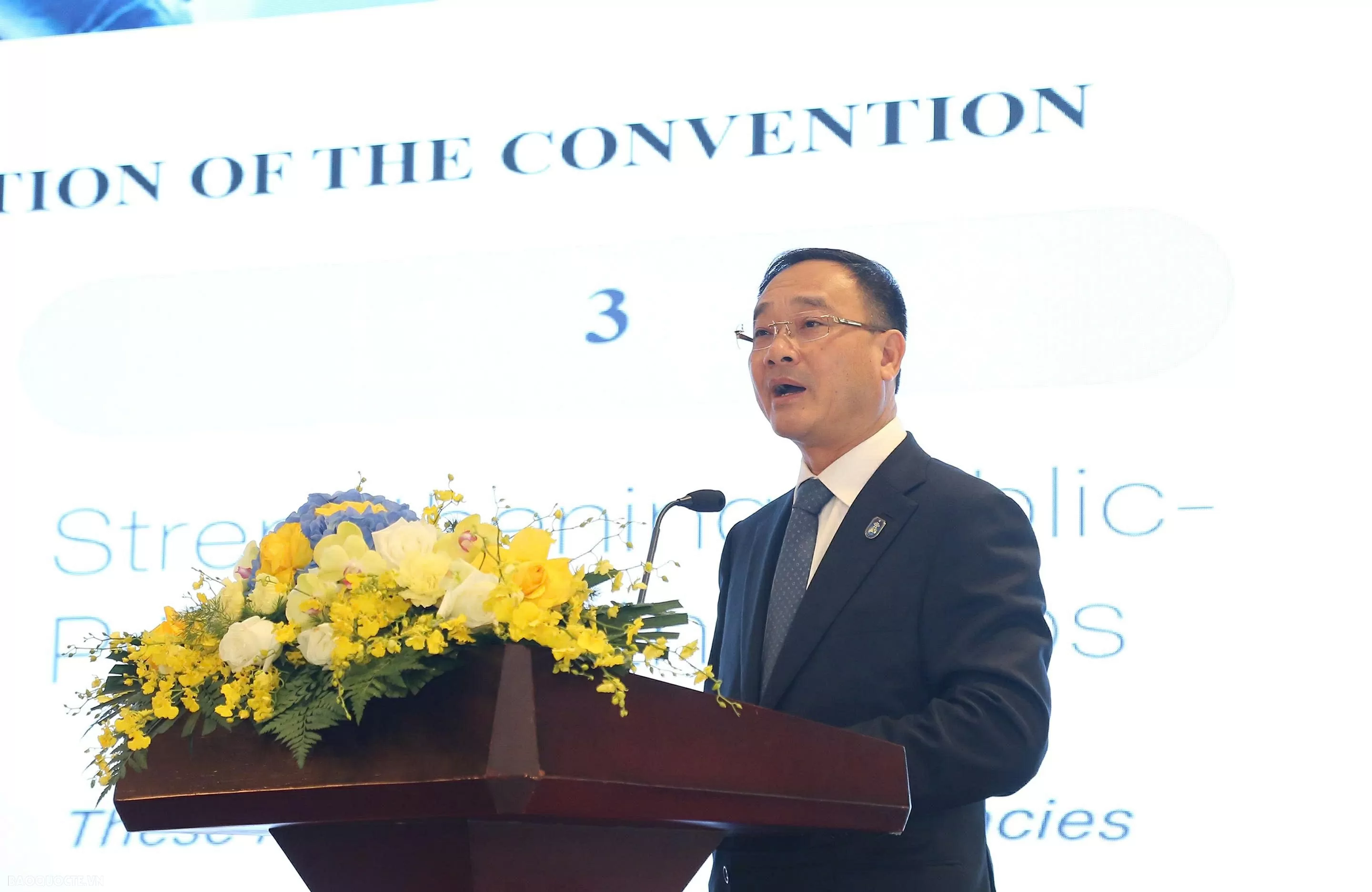
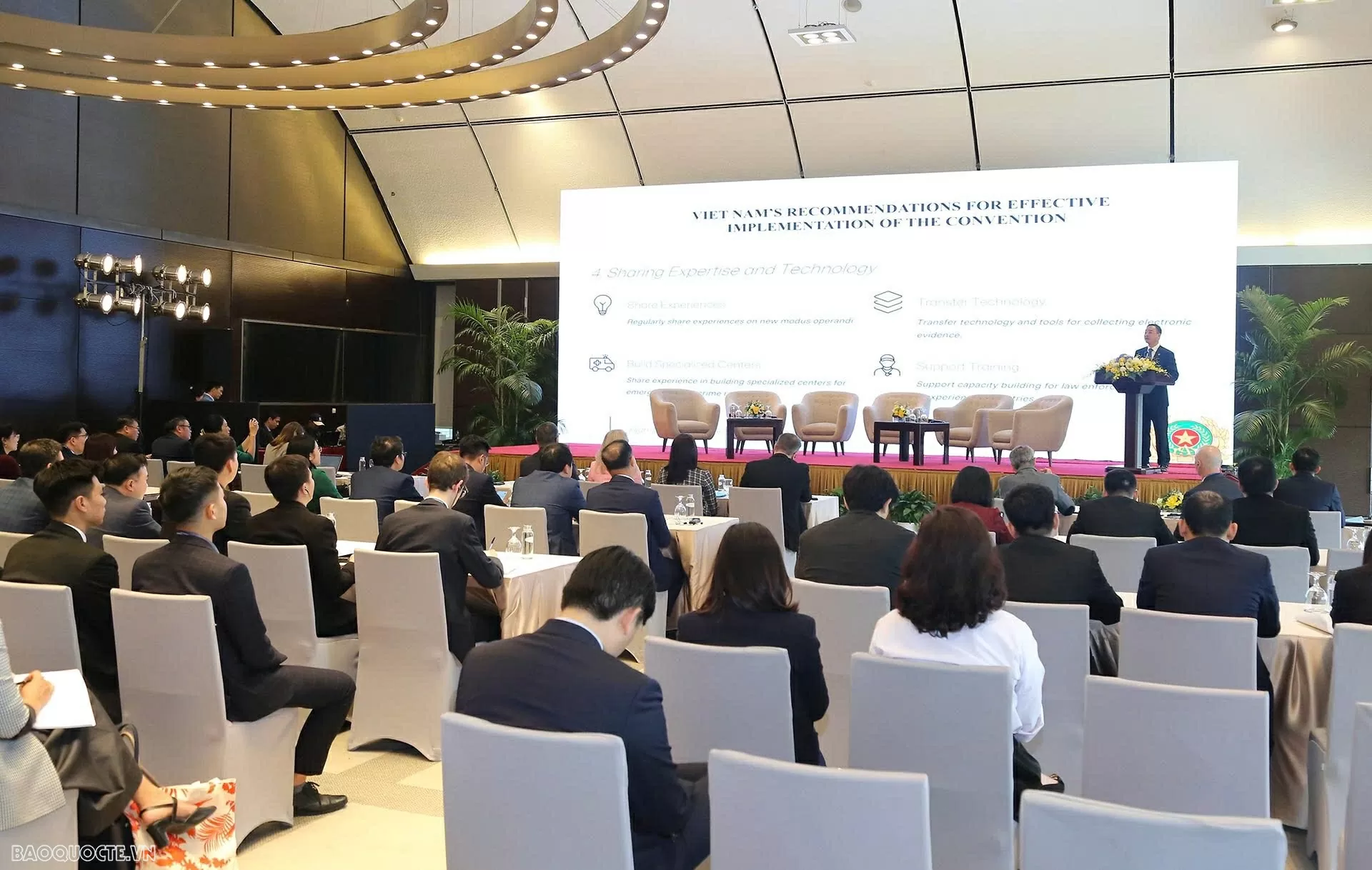
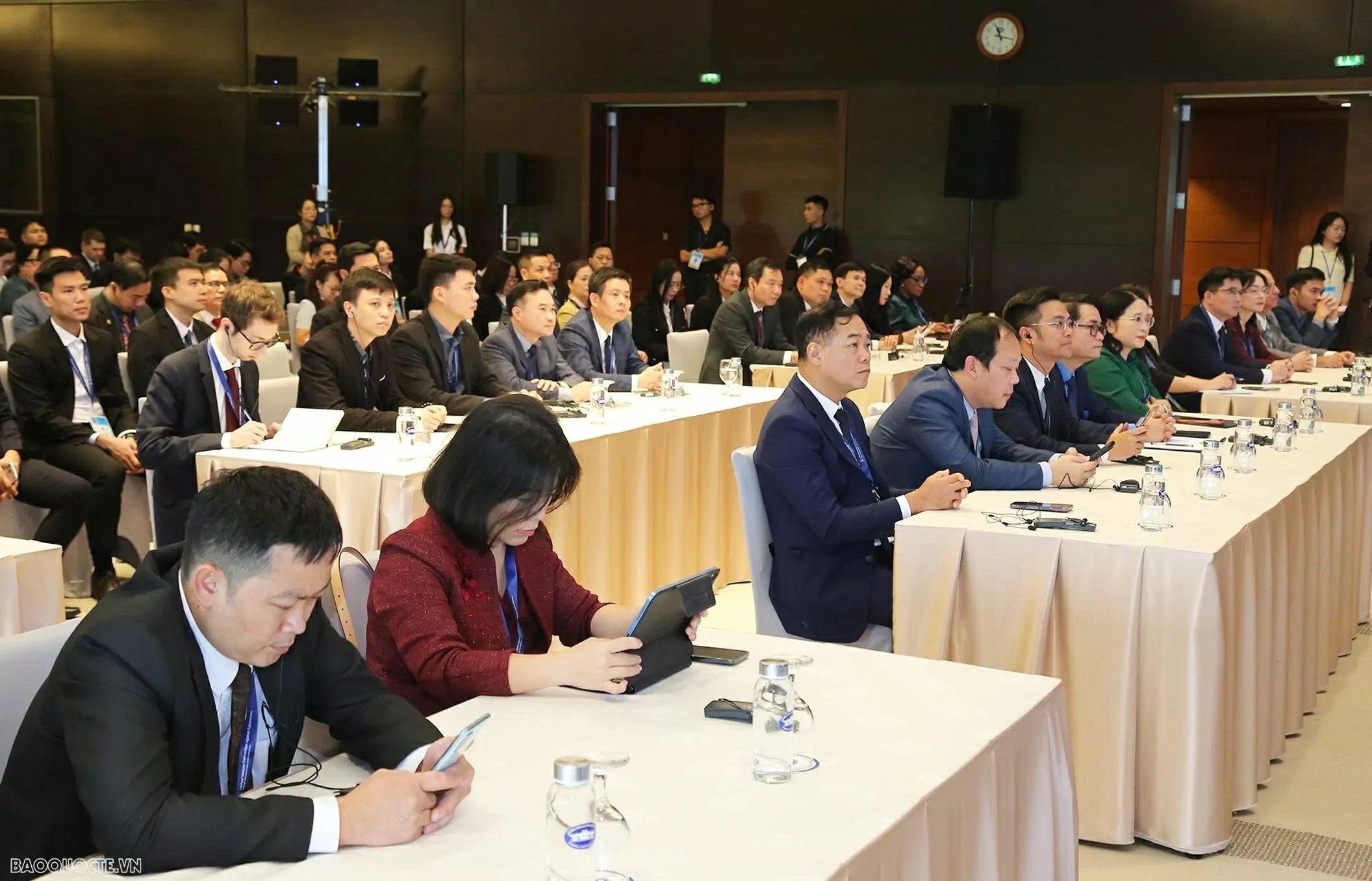
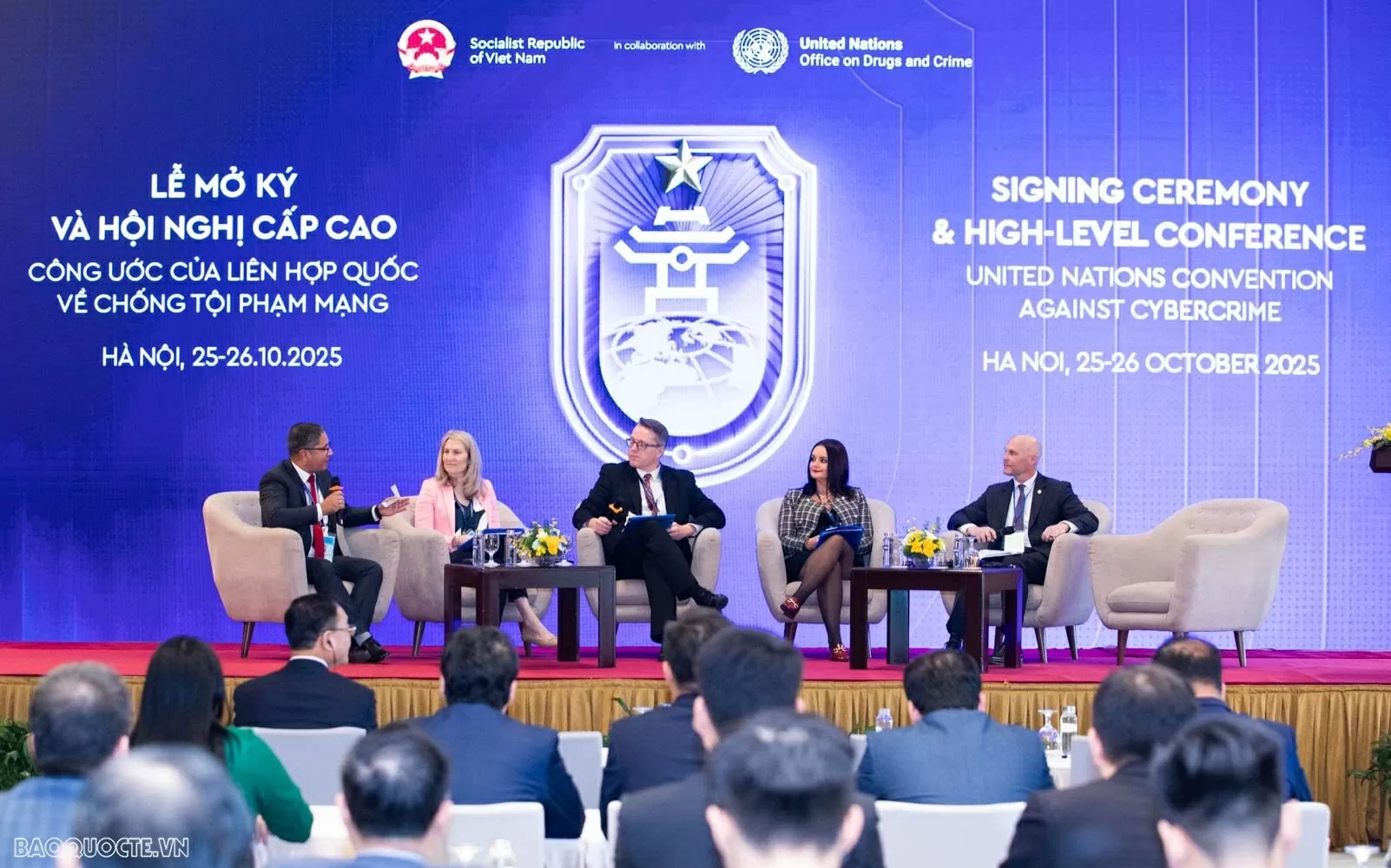

![[Photo] National Assembly Chairman Tran Thanh Man receives Chairman of the House of Representatives of Uzbekistan Nuriddin Ismoilov](https://vphoto.vietnam.vn/thumb/1200x675/vietnam/resource/IMAGE/2025/10/27/1761542647910_bnd-2610-jpg.webp)

![[Photo] Party Committees of Central Party agencies summarize the implementation of Resolution No. 18-NQ/TW and the direction of the Party Congress](https://vphoto.vietnam.vn/thumb/1200x675/vietnam/resource/IMAGE/2025/10/27/1761545645968_ndo_br_1-jpg.webp)
![[Photo] The 5th Patriotic Emulation Congress of the Central Inspection Commission](https://vphoto.vietnam.vn/thumb/1200x675/vietnam/resource/IMAGE/2025/10/27/1761566862838_ndo_br_1-1858-jpg.webp)

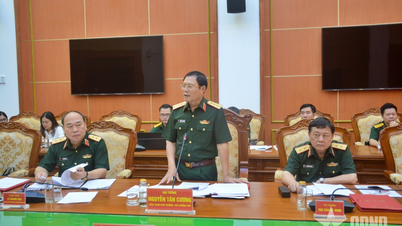

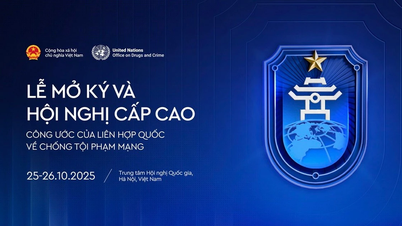

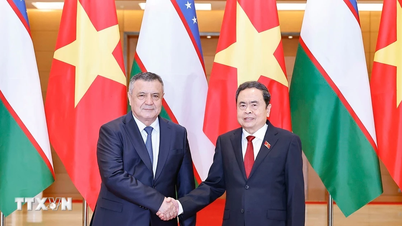
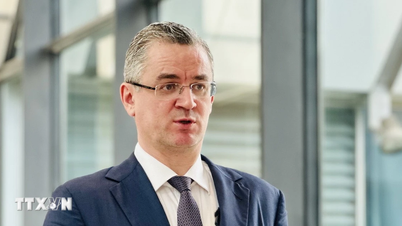
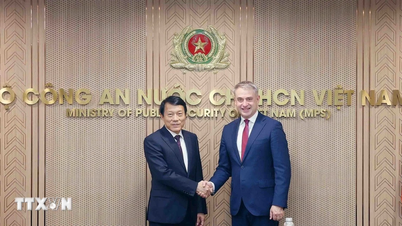
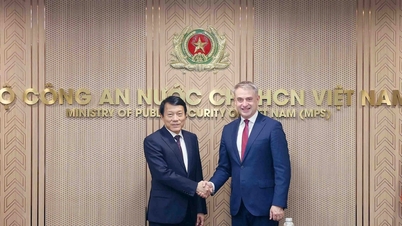



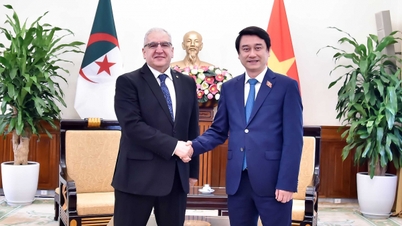
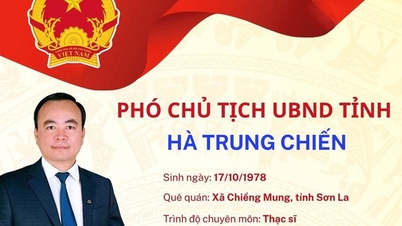
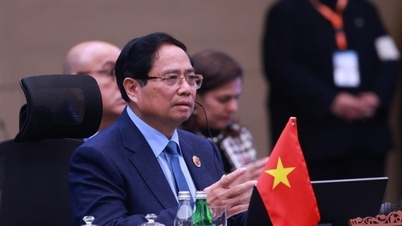
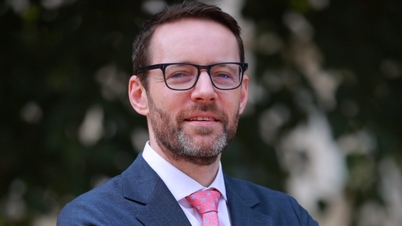
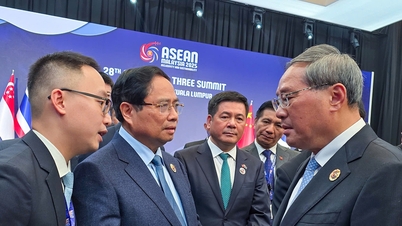





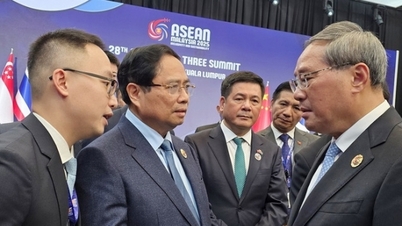

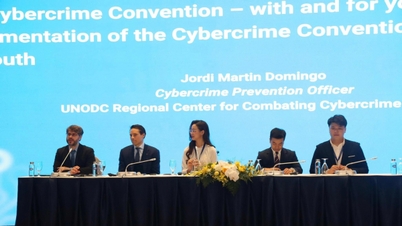
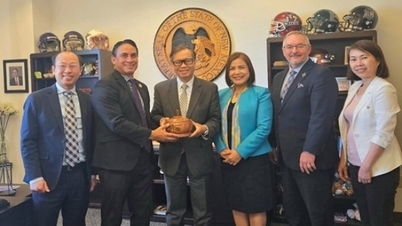
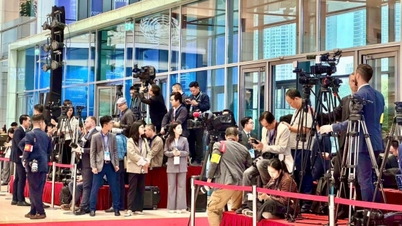






































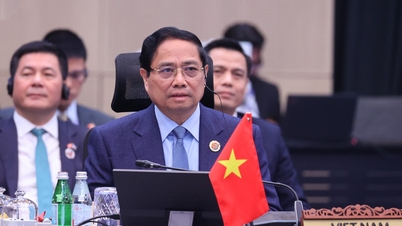







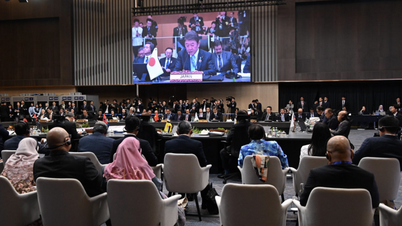



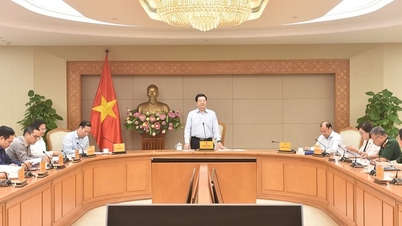

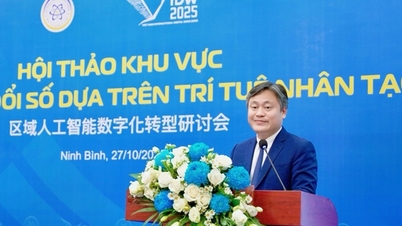
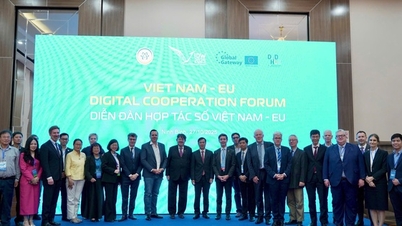
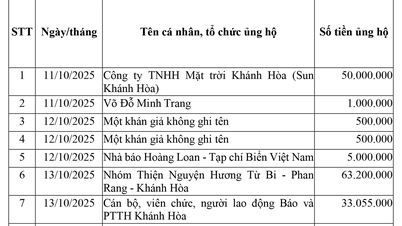

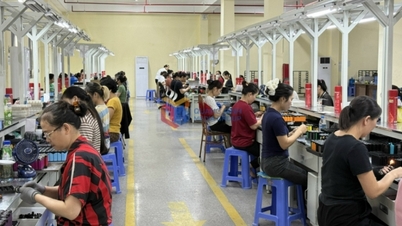

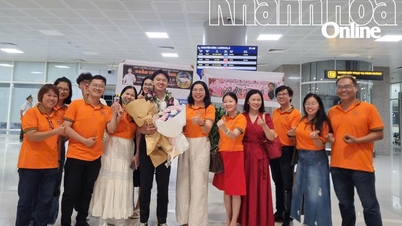
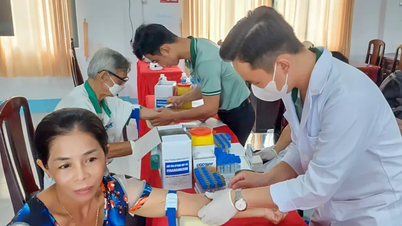

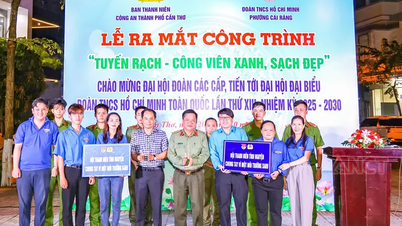


















Comment (0)